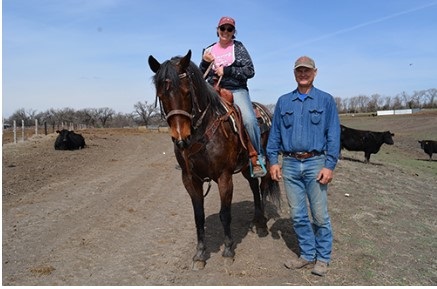WASHINGTON, D.C. – Fifteen Republican members of the U.S. House of Representatives have renewed calls for EPA and the U.S. Army Corps of Engineers to delay any new rulemaking on waters of the U.S., asking the heads of the agencies to allow the Supreme Court to issue a ruling in an upcoming Clean Water Act case.
In a letter to EPA Administrator Michael Regan and Michael L. Connor, assistant secretary of the Army for Civil Works, the members of the Water Resources and Environment subcommittee also pointed to a recent Supreme Court decision that now limits the EPA’s authority to regulate greenhouse gas emissions, as a reason to allow Congress to redefine Waters of the United States (WOTUS).
The House members have asked the agencies to provide to the subcommittee by Oct. 4, a list of expected and pending WOTUS rulemakings from the agencies.
So far in 2022, the agencies have proposed and finalized just one WOTUS rule — returning to the pre-2015 WOTUS definitions ahead of an eventual rewrite.
The second rulemaking is to craft a durable definition based on Supreme Court precedent and draw from the lessons learned from the current and previous regulations.
HISTORY
*In 2015, the Obama Administration finalized a new and controversial WOTUS definition which was immediately challenged in the courts. This left the pre-2015 WOTUS rule in effect in 28 states and the 2015 WOTUS rule was the law of the land in 22 states until April 2020.
*The Trump Administration repealed and replaced the 2015 rule and released its definition of WOTUS within the Navigable Waters Protection Rule (NWPR) in January 2020, more than two years after an Executive Order (EO) was issued to withdraw and rewrite the 2015 rule. In response to the proposed 2020 rule, NACo submitted comments detailing the rule’s potential impact on counties and offering recommendations.
 *In January 2021, President Biden signed EO 13990, which triggered a review of the 2020 rule. On June 9, 2021, the EPA and the Army Corps announced their intent to initiate a new two-step rulemaking process.
*In January 2021, President Biden signed EO 13990, which triggered a review of the 2020 rule. On June 9, 2021, the EPA and the Army Corps announced their intent to initiate a new two-step rulemaking process.
*On August 30, 2021, the U.S. District Court for the District of Arizona vacated and remanded the NWPR in the case Pasqua Yaqui Tribe v. United States Environmental Protection Agency. Due to the Court’s decision, the EPA and Army Corps are interpreting WOTUS consistent with the pre-2015 regulatory regime until further notice.
*On October 4, 2021, the public comment period for the EPA and Army Corps’ federalism partners closed. To review NACo’s public comments, please click here. To review the joint comment submitted with the National League of Cities and the U.S. Conference of Mayors, please click here.
*On November 18, 2021, the EPA and Army Corps announced the proposed rule to codify the EPA and Army Corps implementation of the pre-2015 WOTUS guidelines.
*On December 7, 2021, the EPA and Army Corps published in the Federal Register the proposed rule revising the definition of WOTUS. Comments must have been received on or before February 7, 2022. https://www.federalregister.gov/documents/2021/12/07/2021-25601/revised-definition-of-waters-of-the-united-states
UPCOMING SUPREME COURT ARGUMENTS
The Supreme Court is hearing oral arguments on Oct. 4, in Michael Sackett v EPA. That case could determine to what degree the agencies would be allowed to regulate wetlands.
“In March, over 200 members of the House of Representatives wrote to the agencies urging a halt on all current rulemaking actions surrounding the WOTUS definition as the Supreme Court takes up this landmark case,” the letter from the 15 House members said.
“We reiterate that request, and now further stress that the agencies must consider the decision of West Virginia v. EPA prior to issuing a rulemaking that would clearly surpass the agencies’ congressional authority to define WOTUS.”
SACKETT CASE
In the Sackett case, the Supreme Court will consider a very narrow question regarding the reach of the Clean Water Act: Whether the U.S. Court of Appeals for the Ninth Circuit in San Francisco used the proper legal test for determining whether wetlands are waters of the U.S.
In particular, the Sacketts have asked the Supreme Court to consider whether the so-called “significant nexus” test is the right method used when it comes to wetlands.
In an opening brief filed on April 11, 2022, Michael and Chantell Sackett said their 0.63-acre tract of land in Priest Lake, Idaho, never has contained wetlands and that the significant nexus test used by EPA and U.S. Army Corps of Engineers is the reason why the couple has been unable to develop the land.
Significant nexus is established if there is a connection to a downstream waters of the U.S. and if an area in question has an effect on the chemical, physical, or biological integrity of traditional navigable water.
The Sacketts outline in their brief what they said should be a two-step process to determine whether wetlands are jurisdictional.












